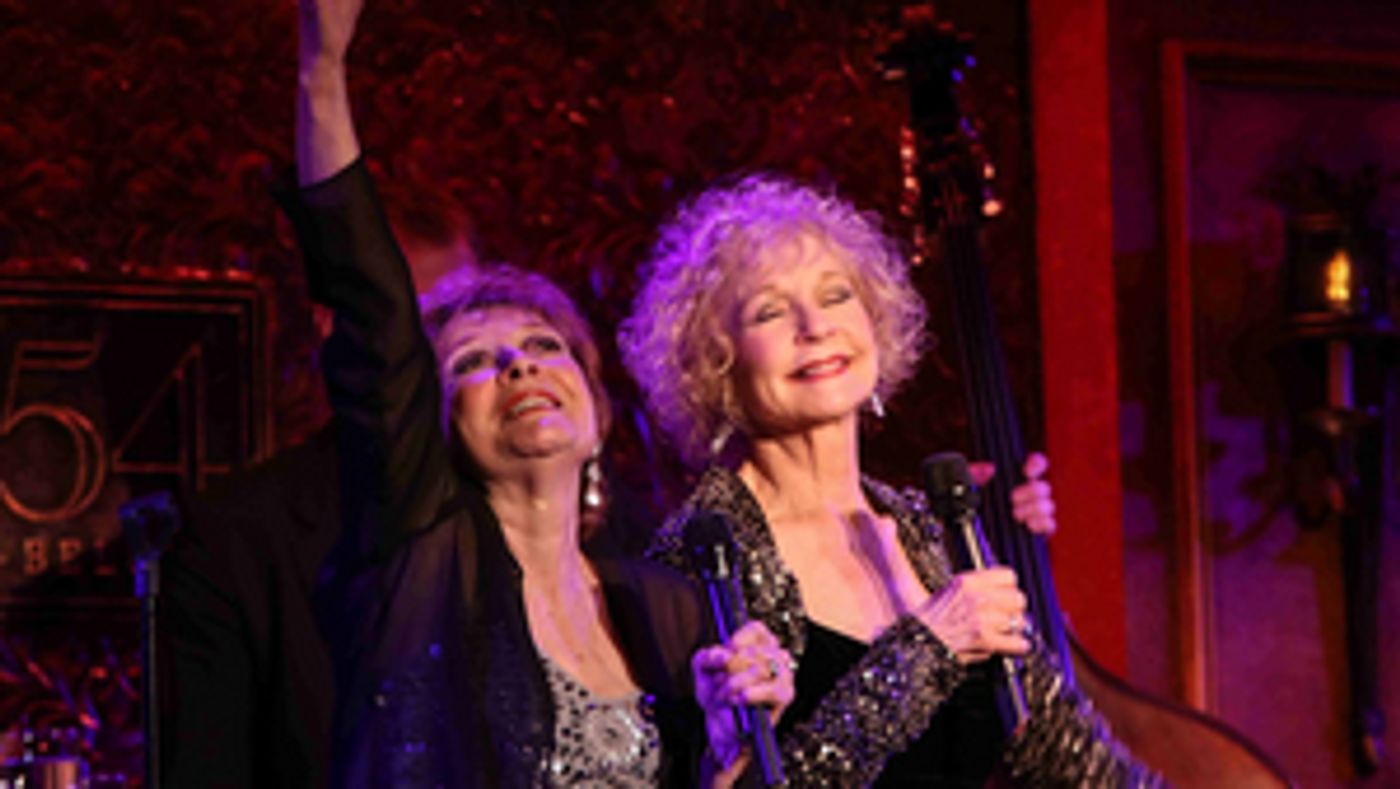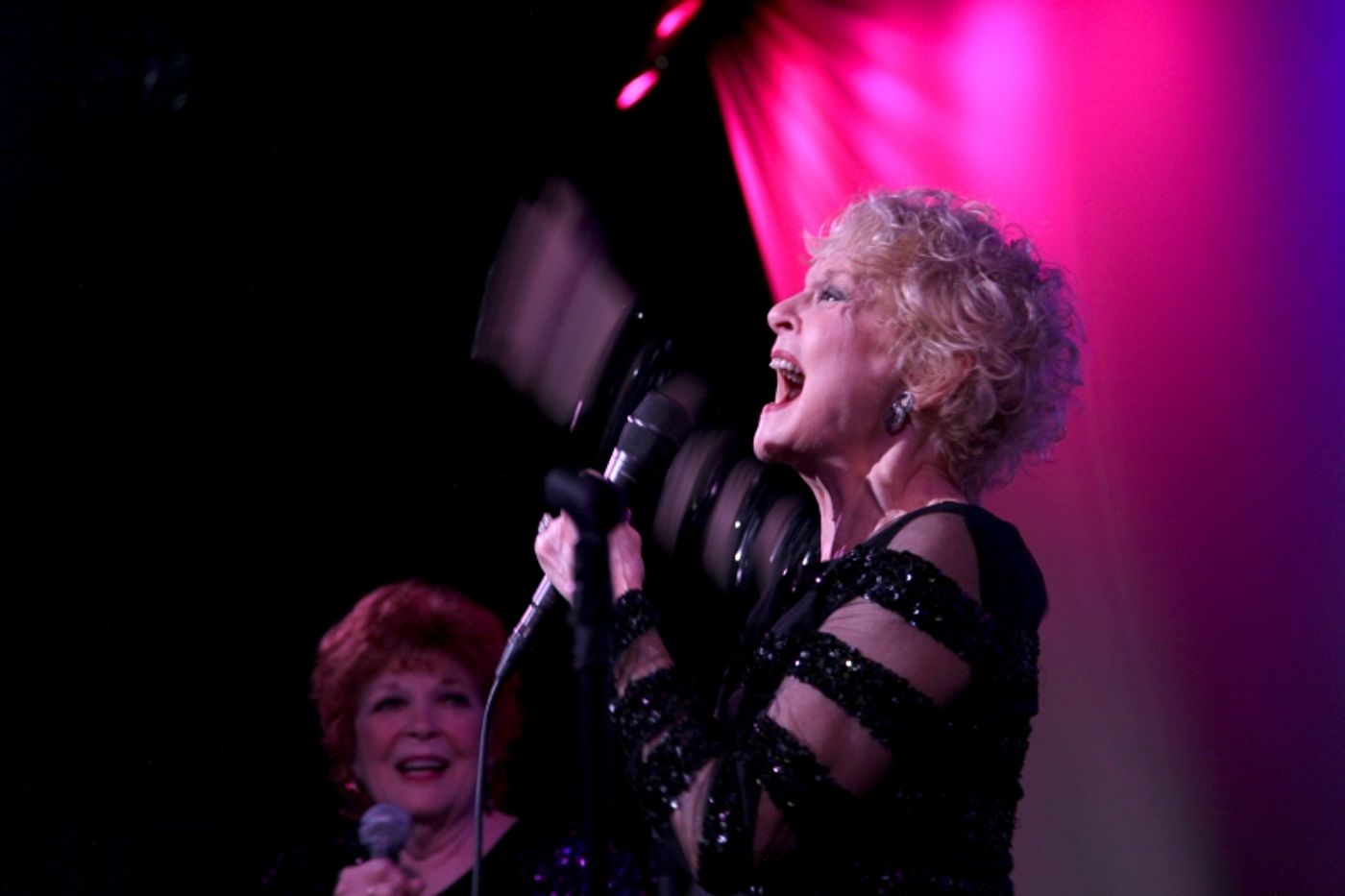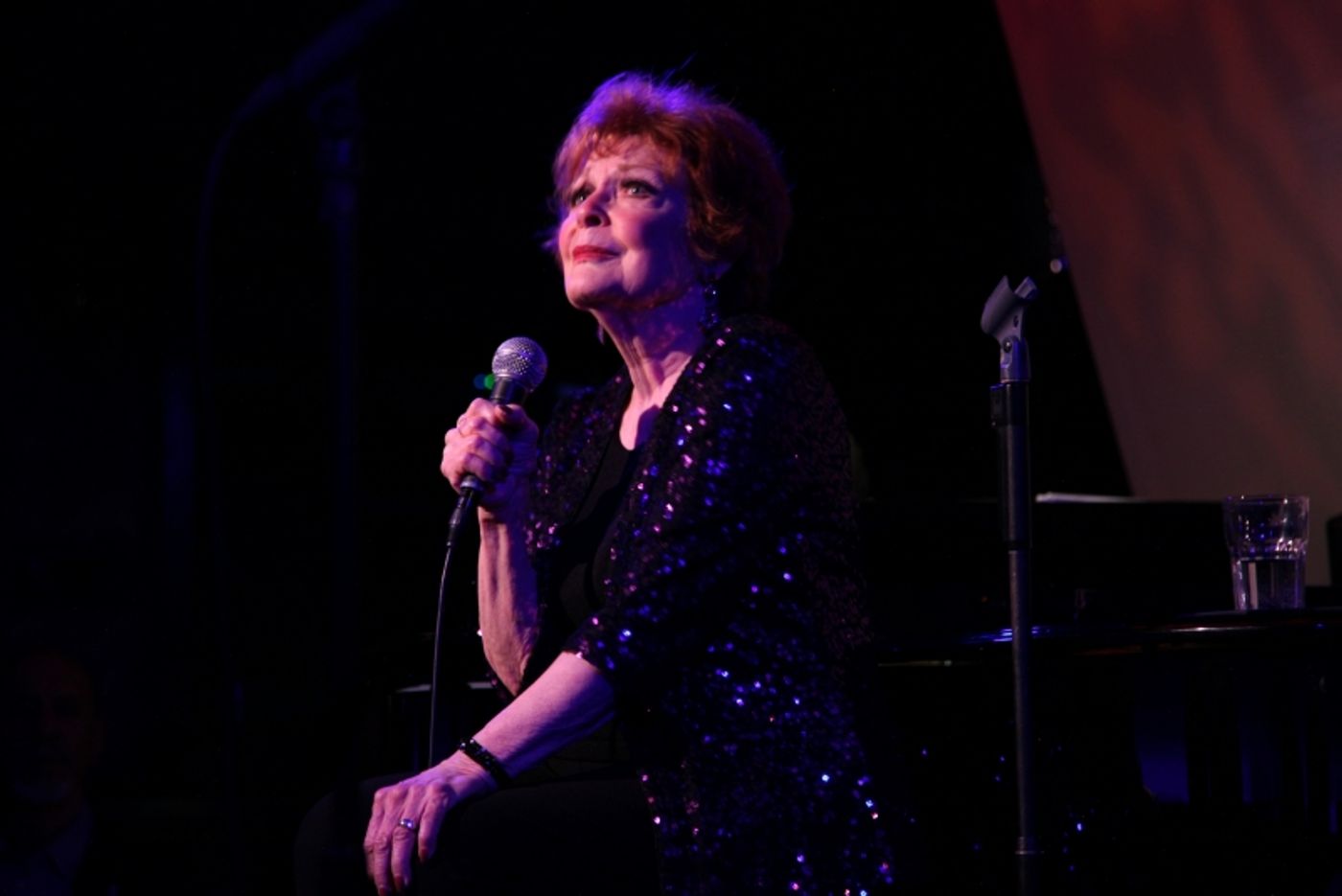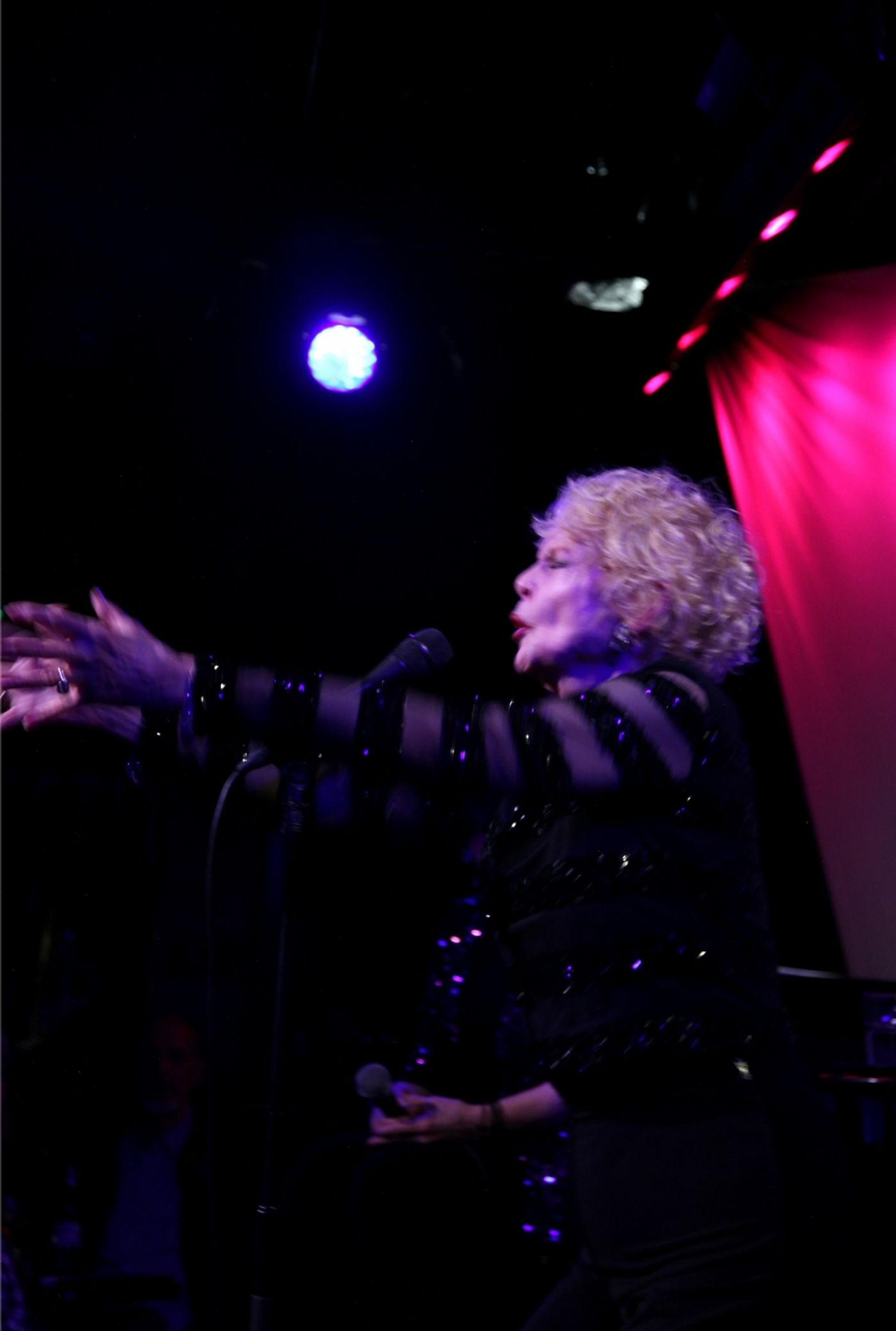Interview: Anita Gillette & Penny Fuller of SIN TWISTERS at 54 Below Talk About Their Long Careers and Their Amazing Friendship
Anita Gillette and Penny Fuller Star in SIN TWISTERS at 54 Below August 16

Anita Gillette and Penny Fuller have more than 100 years of Broadway experience between them. They have appeared in dozens of Broadway and Off-Broadway plays, as well as performing many roles on television and in motion pictures. Penny Fuller was Tony-nominated twice for Applause and The Dinner Party. Anita Gillette also was nominated for Neil Simon's Chapter Two. Ms. Gillette made her Broadway debut with no less than Merman in Gypsy. Moviegoers will remember her from films like Moonstruck, Boys on the Side, Bob Roberts, She's the One and Shall We Dance? Ms. Fuller won an Emmy for her performance as Mrs. Kendall in The Elephant Man. Her recent Broadway credits include An American Daughter, Sunday in the Park With George, and Anastasia. Their collected credits would take up more space than this article.
Although they have been in show business for a very long time, their close friendship is not even a decade old yet. Fans frequently mistake them for each other. This is the premise of their show SIN TWISTERS which will open at 54 Below Monday, August 16. The title, of course, is a Spoonerism. Fuller and Gillette explain that, and the mystery of their mistaken identities in the show. They also sing lots of fantastic numbers from the many stages of their careers. I recently caught up with Anita and Penny on Zoom. It was a chatty, delightful afternoon.
I'm very glad that you were able to talk to me today. Before we talk about SIN TWISTERS, which, by the way, is a hysterical title, I wanted to talk about the two of you. It seems inconceivable to me that you have not been friends until recently. How did you meet?
I was going to a Christmas party at Len Cariou's apartment that we were both invited to. We had been like passing ships in the night with each other, but we were always up for the same things. People have always gotten us mixed up, even though we're really so different in so many ways. We ran into each other at the party, and when we started talking, we realized, "Oh my God, I want to know this person." And so we took our glass of whatever, champagne or wine, and we slid down the wall. Our feet were across the hallway, so nobody could come in or go out. And we haven't stopped. That was over 10 years ago.
Eight years ago in 2013. Just before the lockdown, I had lunch with my friend, Jamie deRoy, and she called me Anita. Even now.
It happens. People send me pictures to autograph... and there's always three or four in there of her and not me.
But the reason was because I used to have blonde hair. I was in Cabaret. My friend that I had worked with on Broadway, Robert Redford, came to see me and he said, "Oh, that was wonderful. You know what you ought to do? You ought to dye your hair red." And my head was in the sink for the next 20 minutes. When we had red hair, both of us, then it was really possible to understand. They still confuse us no matter what color our hair is.
I'm being brave and I'm not dying my hair anymore. I call it Calico.
I was in Anastasia, wearing wigs, and then the pandemic happened fairly soon after that. I just couldn't bother with color and dye, and this is the color it turned out. So here we are. What's that poem? "The calico cat and the something, something went to sea?" We should look that up.
"The Owl and the Pussycat" is what you're thinking of.
Yeah.
I would like to talk about the genesis of SIN TWISTERS. When did that idea happen?
In the hallway.
In the hallway, it sort of did. Yeah.
I had hired Barry Kleinbort to do my first show, After All. And, of course, he and Penny are old dear friends. And then we thought of this.
It was Barry's idea for us to do a show. And my mother and her sister-in-law used to call themselves "Sin Twisters." Barry liked it because it's wacky. I mean, it's not what it really is, but it is what it is, what it is, what it is.
I was going to ask if you're prone to Spoonerisms yourself.
Only when I have a glass of wine.
I'm drinking water. I have to work.
You have both been in show business for over 50 years, which is a stunning achievement for anyone. It's more stunning for a woman in show business to have had that sort of career longevity. What would you say that the secret of your longevity is?
Good health. I mean, not that I have never been ill. But I'm going to be... Well, I talk about it in the show, so I don't want to give everything away.
I won't let you give your age away.
Oh, everybody knows! Those IMDB people won't erase your date of birth. I think it's ageism. It's terrible that they will not remove it. And people who've never given their age don't care. They don't, as we would say, "shive a git." I was so proud that I got in the book "Who's Who In the Theater" very early in my life - I was just touting it all over the place. I was stupid, I guess, telling everybody. But I didn't think it would be a problem. But anyway, that's one thing, good health. And thank God, so far, our minds have stayed pretty well in place. We don't know when our short-term memory is going to fade. We have to remember the difference between what's in this show and the last one. We have to cut half an hour out of the show.
That's a lot.
54 Below wants an hour. Period.
I want to talk a little about Neil Simon. You both have a close association with Mr. Simon's plays and you were both nominated for a Tony for doing one of his plays. Do you have a favorite memory of Mr. Simon?
I have a lot of them. He came into my dressing room the Saturday before the Tonys in 1979. That was when I was nominated for Chapter Two. He had not won a Tony in all those years, with all those plays, and that's just insane. He looked at me and he said: "Anita if my name were Harold Pinter you would definitely win this award. Unfortunately, I'm Neil Simon and it's not going to happen."
You never told me that. I love that story.

It's true. And then the year after, when he did Biloxi Blues, I think he won for that. I'm not sure. But not Lost in Yonkers, not Chapter Two, not Barefoot in the Park. Not any of those wonderful shows.
The last show I did for him was The Dinner Party. It had opened and closed in Los Angeles at the Taper. Well, this is a play about being locked in a room. The Taper is an open thrust stage, so there was a problem, to begin with. So it didn't do very well out there. So they closed and it was all over. Now there was an opening in Washington DC for three weeks and they all gathered themselves together and said "Let's do Dinner Party." So I was hired and Len Cariou was hired. Neil was a little nervous because he'd never gotten good reviews in Washington. And we opened and we got fabulous reviews. And he wrote me a note which said: "Thank you for saving my play."
That's great. I didn't know that either.
Yeah, I forgot it. Until now.
Okay. I would like to talk to you a little about being a woman in show business. There are so many healthy discussions now about how women are treated and respected or disrespected in show business. How has that changed in the time that you have been acting on Broadway? What would you say are the differences between the 1960s and now?
I'm not sure it has changed all that much. I only know about myself. In Hollywood, at least, in film, men still get paid more for work than women do. Unless you're Meryl Streep. Just take the Olympics for instance. Last night I watched that wonderful girl, Molly Seidel, the marathon runner - this girl won the bronze. She was only beaten by 26 seconds. That's one second a mile. I mean, it was 26 miles. And she won the bronze. And what did the Times do? They buried the story on the fourth page. All of the billionaire baseball and football people, those guys got front-page coverage in the sports section. And those incredible Kenyan women who won the gold and silver? They all got buried on the fourth page. And I'm not like a big "Me Too" person either. I mean, after all we've been through. When I started, everyone thought I was cute and I'm small - I had a rough time with guys coming on to me. I dealt with it by making them laugh. So that's what I did. I'm very happy it may be a little different now. I mean, I think it's better.
Not that much. I had something that was really hard. I was supposed to be the lead in this pilot that was going up for approval from the network. It was about a rooming house in the south. And there was a dear friend of mine, a man who was offered a role. Not the lead. And he was offered $2,000 a week more than I was making as the lead. And he was not even a "name." That's when I got it.
And it's not only in show business. That happens in all sorts of fields. I have a sort of pointed question about that. I want to ask about two women that you worked with in the early part of your careers. Anita, you worked with Ethel Merman, and, Penny, you worked with Lauren Bacall. Both of them had a reputation for being, if not difficult, then, at least being very formidable women. Do you think if they were working in today's environment, they would have the same reputation?
Yes. I think Ethel would always be that way. She was born that way. She died that way. No change. But she would get her money and she would get the stuff she wanted because of the way people thought about her. And I'm sure she would be able to convince some of these writers that she had it. But the way they're writing things today, it's not the same as the way they wrote things. I think that we were from "the golden age" they called it.
We didn't know we were in "the golden age."
Right? Barbara Cook said, "If I knew I was working in the golden age...I wish somebody would have told me. I could have used that". That's the thing: I think that they wouldn't fit in. I'll tell you when I knew this was going to be a problem. When I did Show Boat, it was in the '90s, like '97... I'd done a lot of stuff but I'd never done a tour. Pat Harrington was Captain Andy and I was Parthy, and Susan Stroman had staged it - big theaters where you had 20 mics across the front of the stage, and the direction had nothing to do with acting. It had only to do with hitting mic number four on this syllable. So if you had a three-syllable word, it was possible you would have to get to mic number four, six, and seven on the same word. And if you stepped the wrong way, "Stop, learn your mics!" I was like "What is this? I need to learn the song! What I feel!" It's the first time I ever heard the word "track." They don't want stars anymore. They want people that can be replaced at a minute's notice, and they know the person that's going to fill in knows exactly what your track is. And that's when I knew it was going to be like a kind of factory.

Lauren Bacall, in truth, was like a pussycat. But remember when she was 19 years old, she went from being a model to starring in a movie opposite of Humphrey Bogart... and being married. So her way of surviving was to be the tough broad. She was really a pussycat. Now, I saw her be terrible to people. But she and I hit it off like that. We had a great relationship. She was fantastic. I could see her be tough, but I knew where it came from.
I have to say Merman was sweet too. I came in understudying Dainty June - that's because Merle Louise took over when the original girl left the show because of an injury - and so I came in and took over for Merle. And when I got pregnant, Merman heard that I was going to be fired. I used to go down and watch her all the time from the wings, she had gotten used to seeing me. She liked it. Anyway, she said "Oh no, no, no, no! The kid stays in the show. Alright, so she doesn't do the splits. She can do the cartwheel......you can still do the cartwheel, right? She can still do the cartwheel. She stays in the show!"
Isn't that amazing? That that recently, you could be fired from your job for being pregnant. Isn't that terrible? Well, this is off the record...
Oh, no honey. You got ours on the record. So let's have yours.
Okay. ON the record. I honestly believe if those women were alive today, the way they would be perceived would be different. If a man behaved in the same way as either Merman or Bacall, people would applaud them and say what a wonderful thing that they're standing up for themselves. That they're being good businessmen. But because they were women, they got this reputation for being tough and difficult. When really they were most likely not difficult at all.
Well, not to me.
Not to me either.
Well maybe to the management.
But, too, when you have somebody like Bacall, when anything went wrong, it was all blamed on her. I mean, they'd say "It's Bacall again." Sometimes it was, but most times it wasn't.
That's just like the show, isn't it? You know that's one of the problems with that story. It's called All About Eve. But it's really not. It's all about Margo.
Now, just a minute! Just a minute! You know that I did it with Ann Baxter, after Bacall. That was an amazing experience. Everybody was trying to help her, you know: nothing works and everybody tried to help and they would touch her and say, "No, you move over here," and the stage manager... I mean, it was awful. She was very upset by that but didn't know how to handle it. I don't know why, I went down into her dressing room and I said "Listen to me. Every woman in Hollywood wanted this part. And you're the one that got it. You're the only one who knows how to play this. So don't listen to anybody. Don't you let them boss you around. And that's all I have to say. Goodbye." I don't know how I had the nerve to do it but I couldn't stand it anymore. Watching what they would do to this brilliant actress.
I have one more question for both of you. If you were talking to a young actress, just starting out, what advice would you give her today?
Study climate change.
Ha. You're probably right. Broadway may be underwater soon.
I'm not sure I would advise anybody to get into this business unless they were beautiful and wanted to try for Hollywood, where the money is. I mean, I'm worried about theater. I know it's been around forever and it probably will last forever, but I just don't know if you can make a living constantly. What you need, other than just the purpose and the drive to succeed, and the talent, I really think it's the roll of the dice. I think it's luck too. I know that some of my jobs came because of luck. I think that it's a big part of it.
I think that's probably always been a big part of it. Don't you?
Penny Fuller
Yeah, it has. I wouldn't know what to say. I'm not denigrating, but I don't see the drive that I was raised with. I went to Northwestern with this phenomenal teacher who would scare the pants off of you. And she told us that if you want to save the world, theater will save the world. Now I forgot to ask her exactly what she meant, but she instilled in me a respect and an awe that I don't find in theater today. I find it being delightful divertissement, you know, but not anything important. And I don't mean that a comedy couldn't be important or a musical couldn't take you out of yourself into this place in between the stage and the audience, where something magical happens to the audience. I don't see that right now. But maybe it's just a transition until it gets better again.
I hope so. Thank you both for taking the time to talk to me I can't wait to see your show.
Thank you, Ricky.
Bye-bye.

SIN TWISTERS plays 54 Below at 7 PM, Monday, August 16. For tickets and information, visit 54below.com.
Videos

